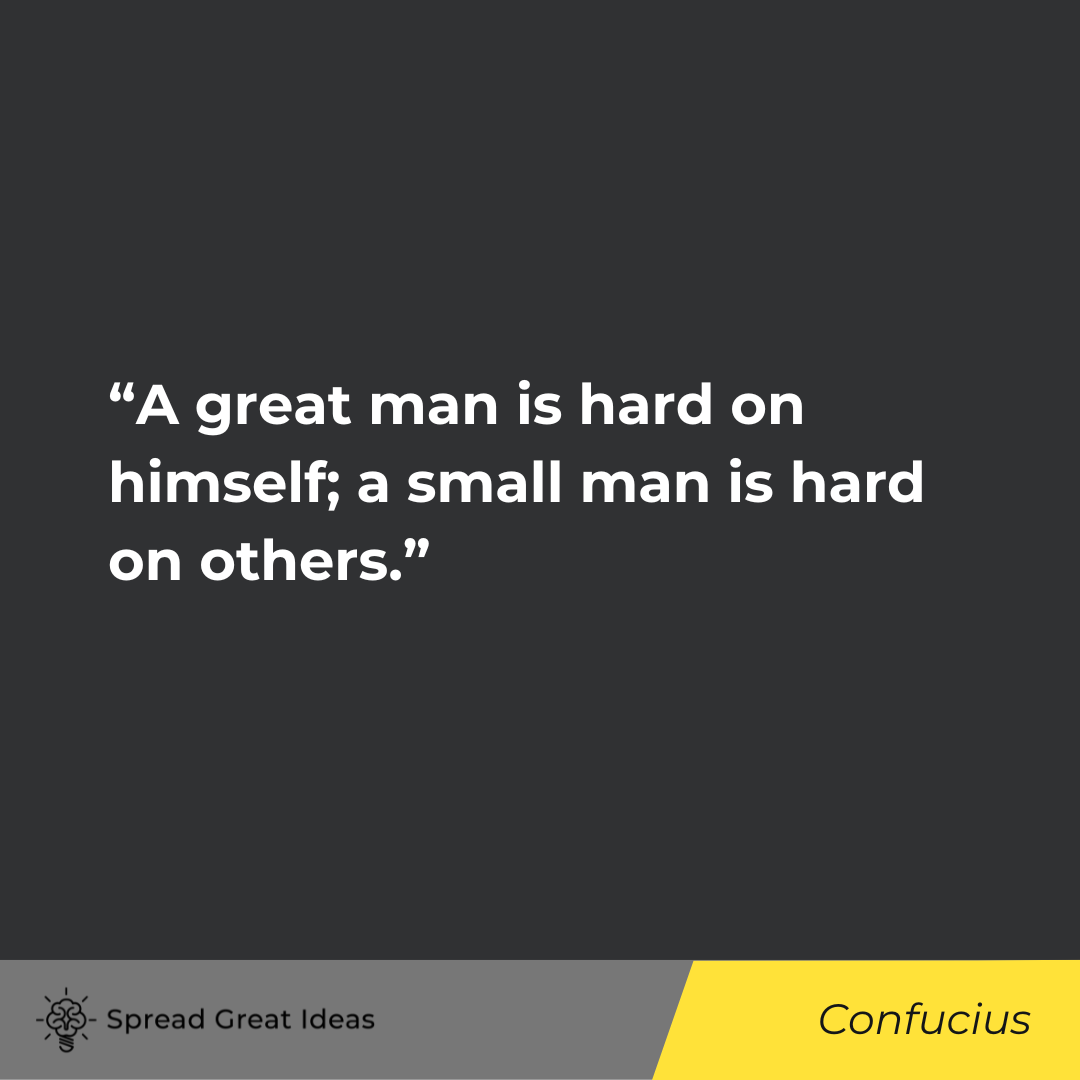Table of Contents

In a world that often celebrates the bold and the boastful, there exists a quiet strength in humility—a virtue that speaks softly but carries immeasurable impact. “Whispers of Humility” is an anthology that beckons you to enter a realm where the profound simplicity of being humble takes center stage. Within the pages of this collection, we unveil a mosaic of quotes that not only touch the soul but also illuminate the transformative power inherent in embracing humility.
As you navigate through these pages, you’ll encounter the wisdom of sages, the reflections of thinkers, and the eloquence of those who have found strength in humility. From succinct adages to thoughtful musings, each quote encapsulates the essence of a virtue that transcends cultural boundaries and resonates across time.
“Humble Quotes” is more than a compilation; it’s an exploration of the profound impact of humility on the human spirit. The words contained herein serve as gentle reminders of the strength found in modesty, the beauty in simplicity, and the enduring nature of a humble heart. Join us on this journey as we delve into the inspiring world of humble quotes, and may the whispers of humility contained within these pages inspire you to embrace grace in your own life’s narrative.
Blaise Pascal
“Do you wish people to think well of you? Don’t speak well of yourself.”
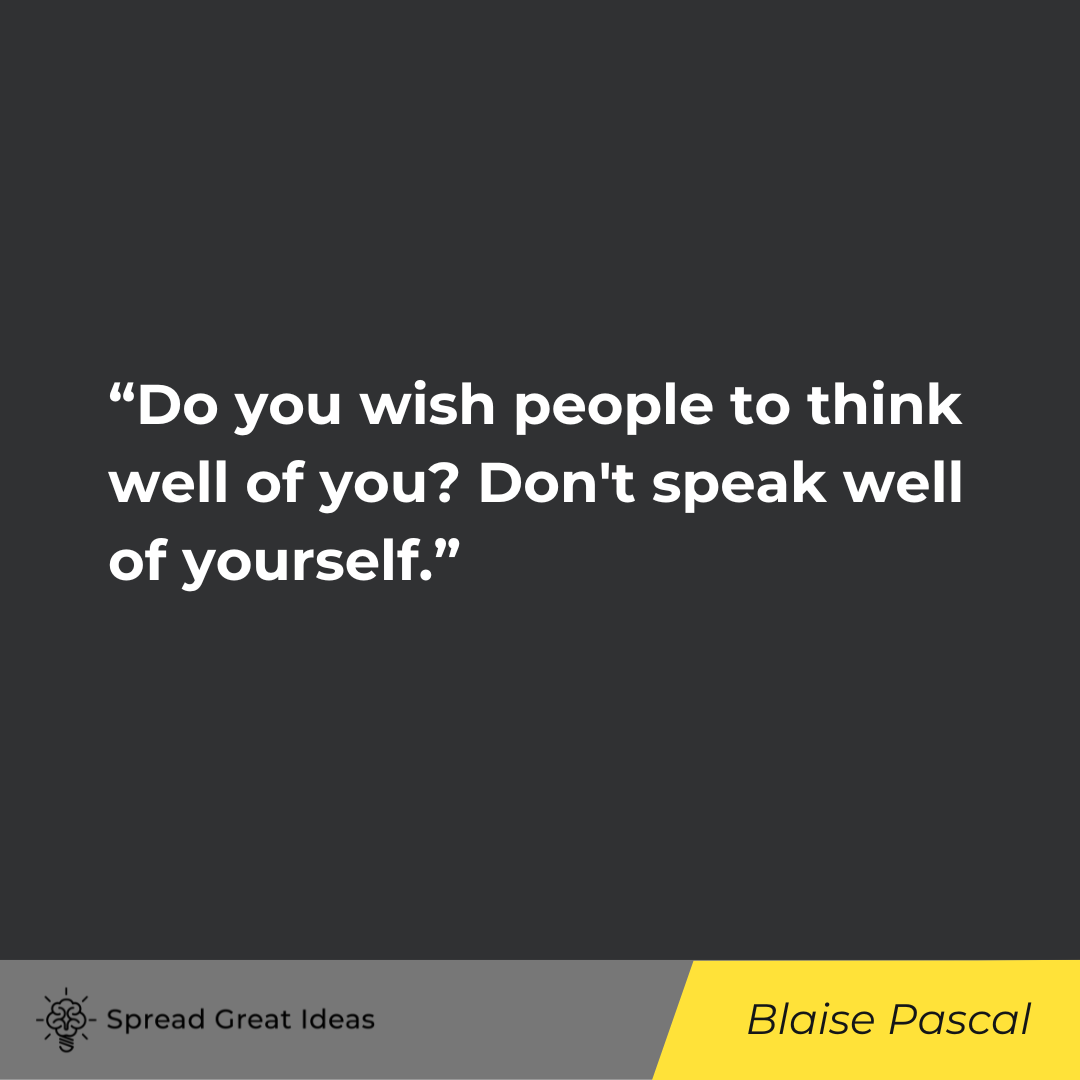
David F. Wells
“Humility has nothing to do with depreciating ourselves and our gifts in ways we know to be untrue. Even “humble” attitudes can be masks of pride. Humility is that freedom from our self which enables us to be in positions in which we have neither recognition nor importance, neither power nor visibility, and even experience deprivation, and yet have joy and delight. It is the freedom of knowing that we are not in the center of the universe, not even in the center of our own private universe.”
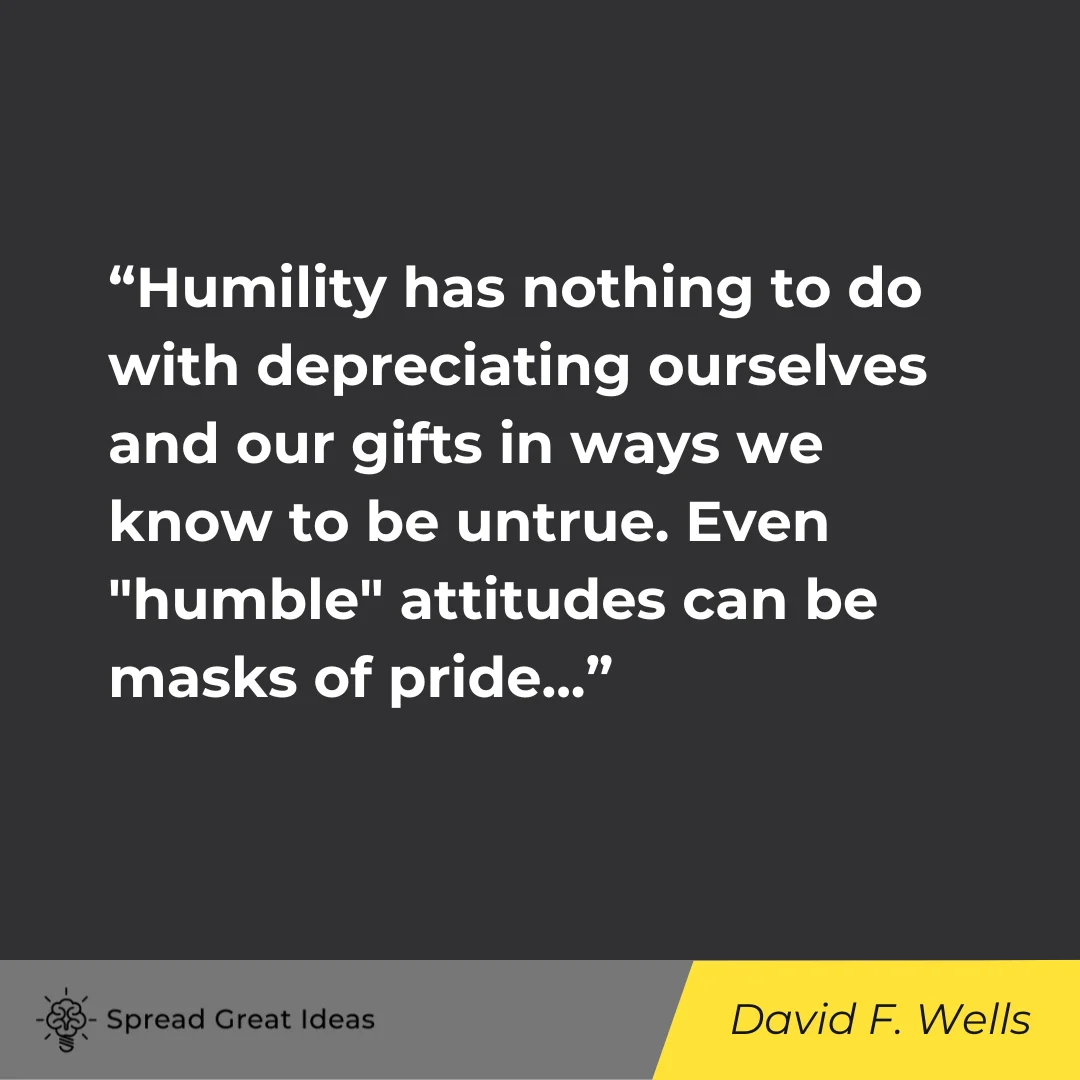
Shannon Alder
“Humility is not a one time lesson that comes when you have lost everything. It is a daily reminder of how far we have come, yet still short of who we can be through HIS guidance. Blessed is the soul that can recognize that he isn’t moving mountains, but God is for him.”
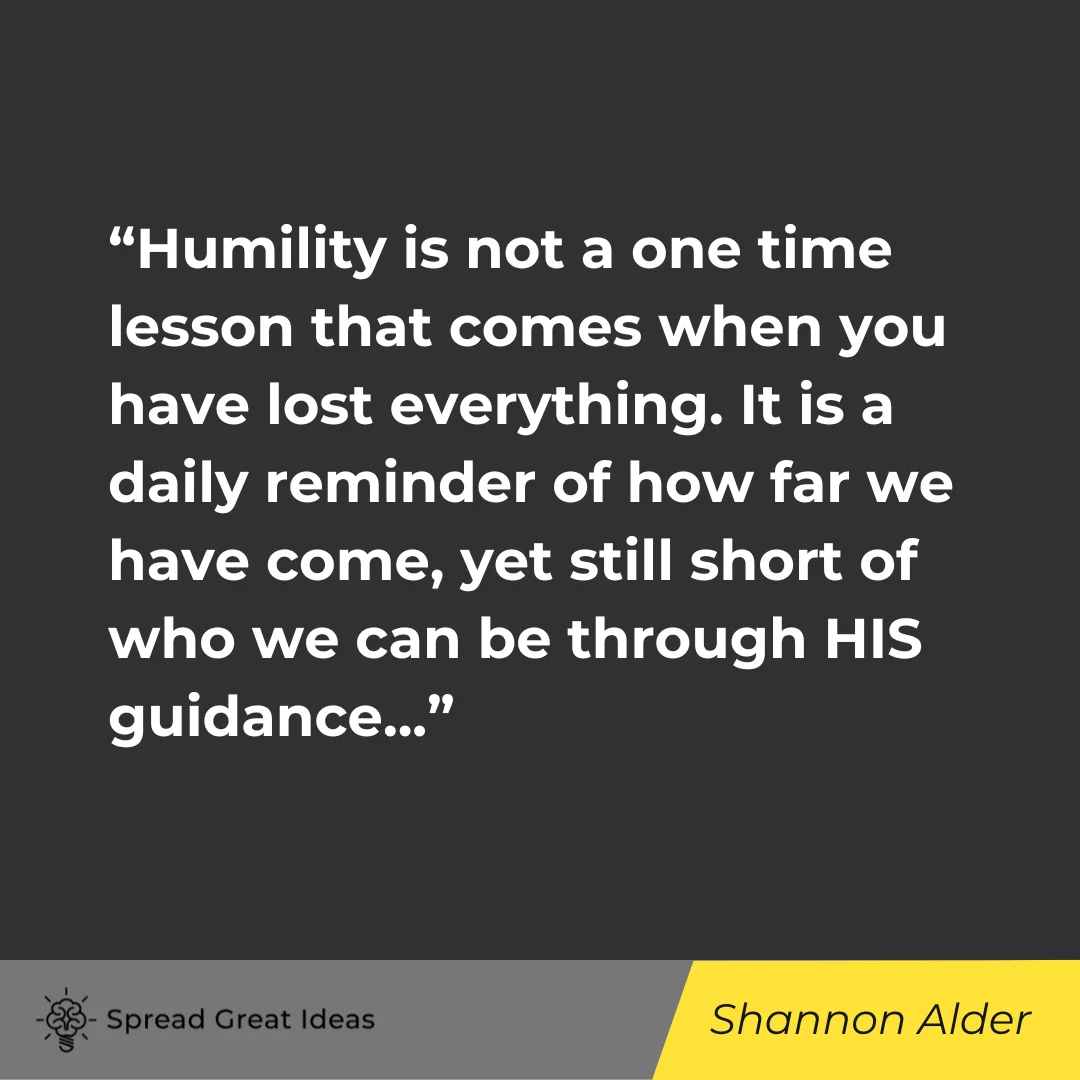
Jeremy Aldana
“A humble man will always receive the best that others have to offer; for he recognizes the truth.”

Bridget Asher
“This mountain, the arched back of the earth risen before us, it made me feel humble, like a beggar, just lucky to be here at all, even briefly.”

Imani Perry
“Acting like you know everything and acting like you don’t know how to be respectful will keep you ignorant. Be humble.”

Kgosi Ngwenya
“Don’t say you’re a winner without challenges, every thing pass with a test, not self-admiration.”

Hermann Hesse
“I realize today that nothing in the world is more distasteful to a man than to take the path that leads to himself.”
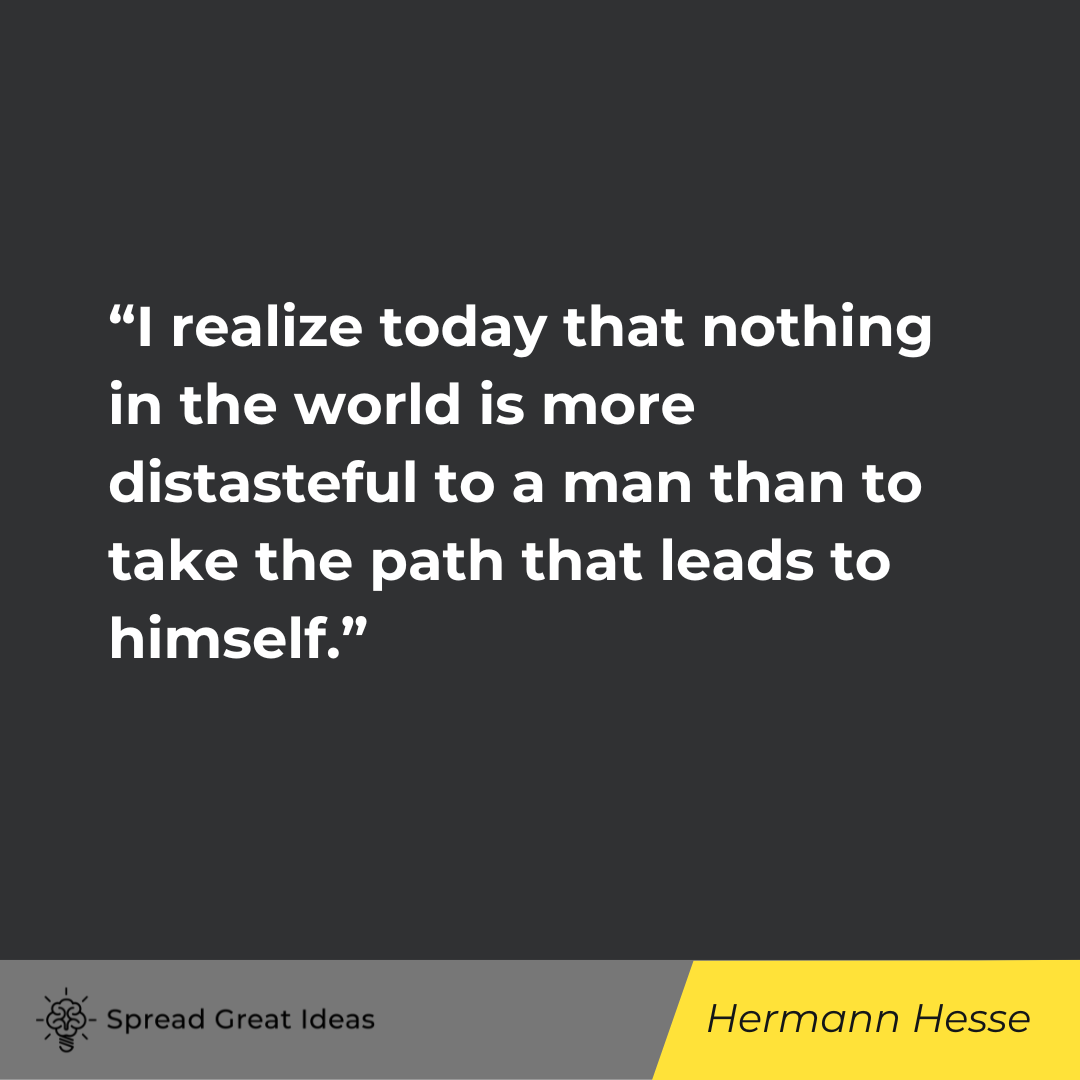
Vladimir Nabokov
“I am sufficiently proud of my knowing something to be modest about my not knowing all.”
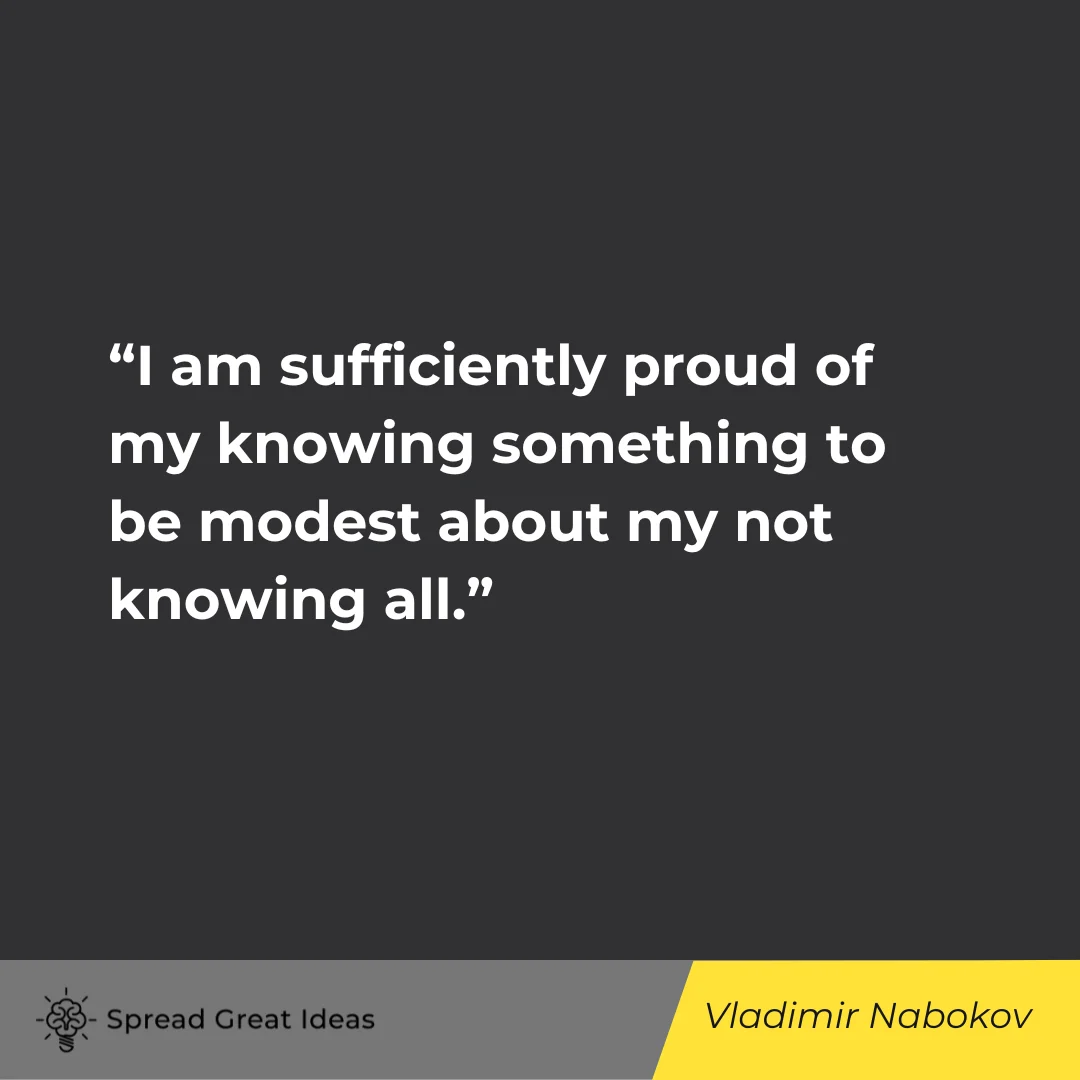
Louisa May Alcott
“The humblest tasks get beautified if loving hands do them.”
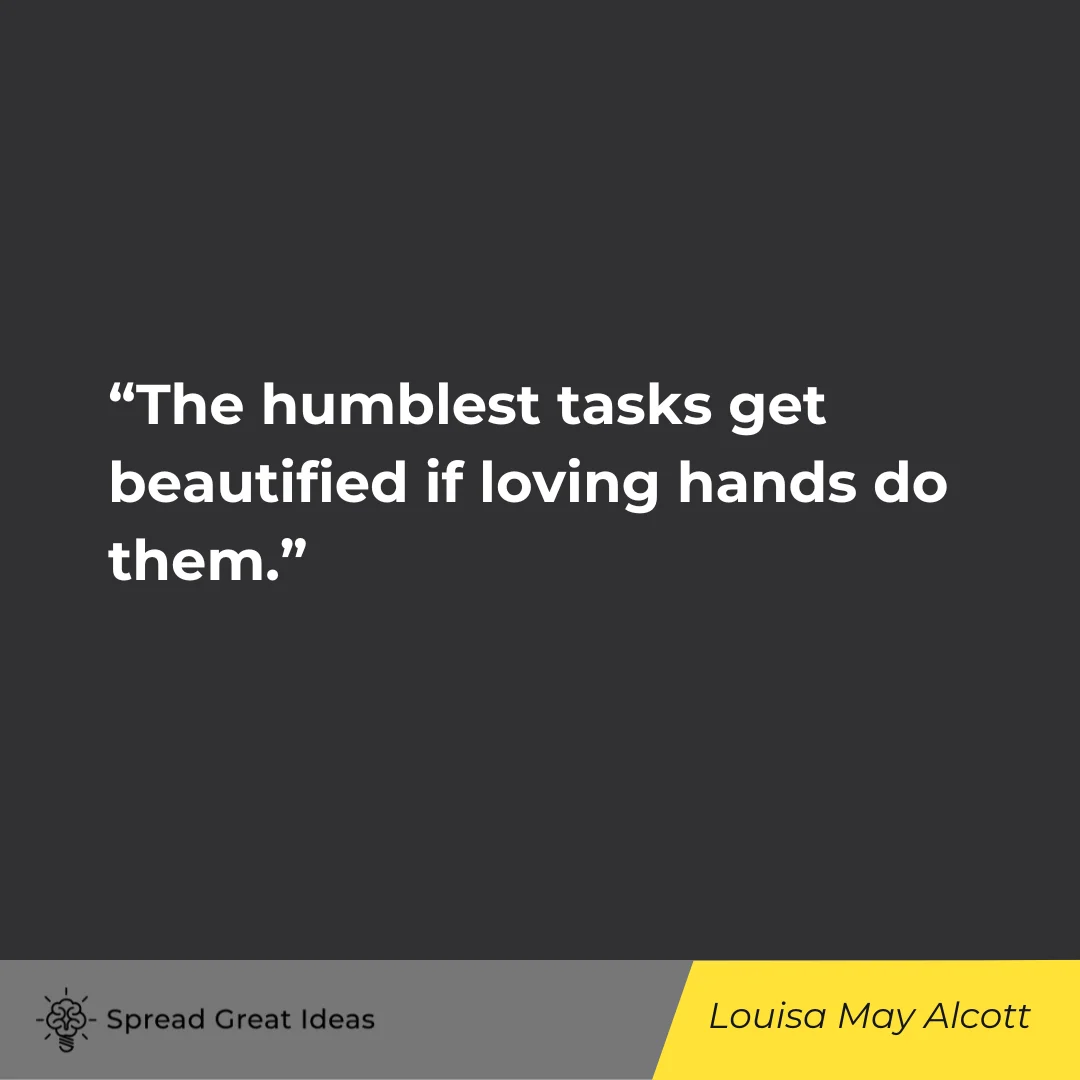
Donna Lynn Hope
“The most beautiful women I have known had one thing in common apart from beauty: humility. It’s a shame that those with less to boast about do it the most.”
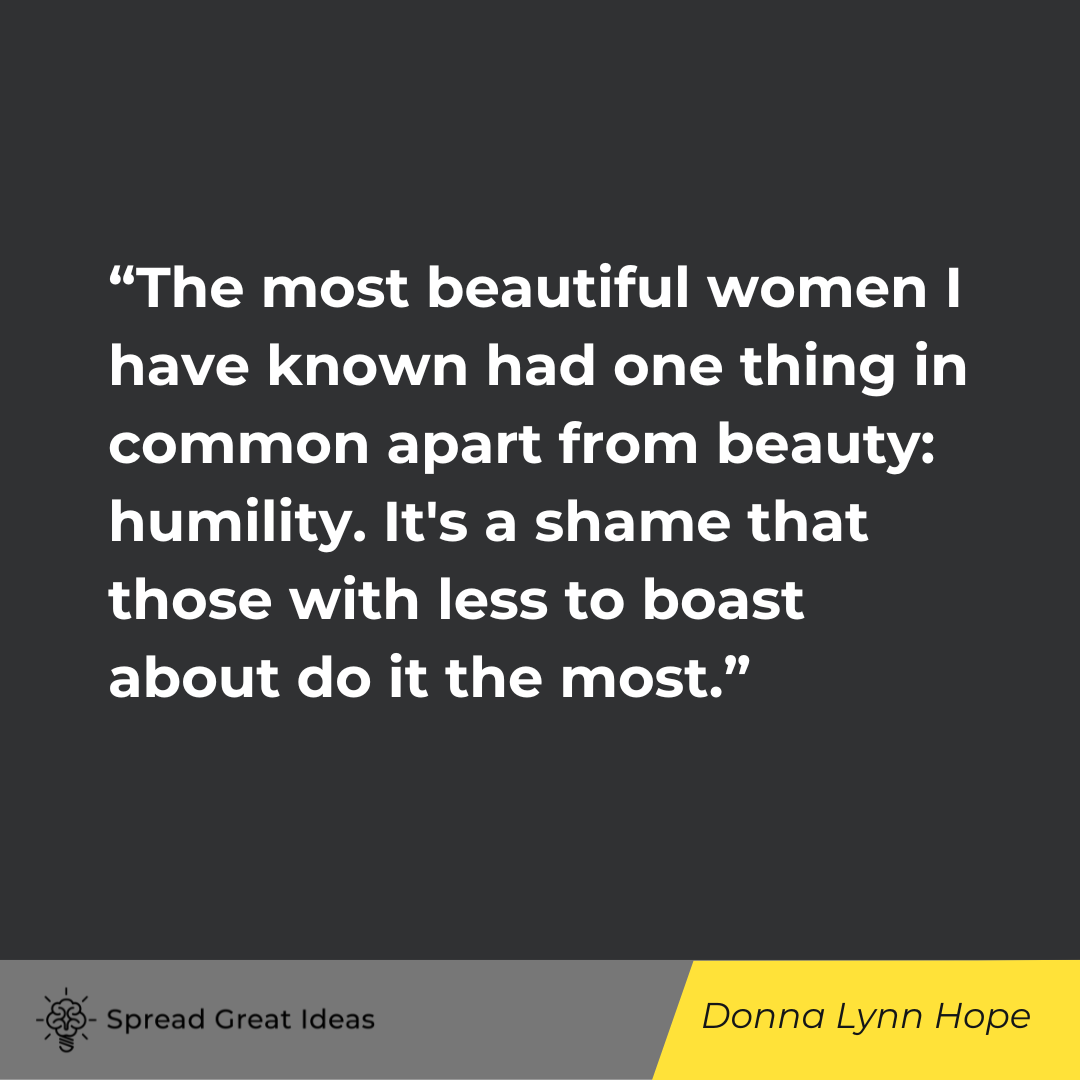
Mokokoma Mokhonoana
“You cannot be truly humble, unless you truly believe that life can and will go on without you.”
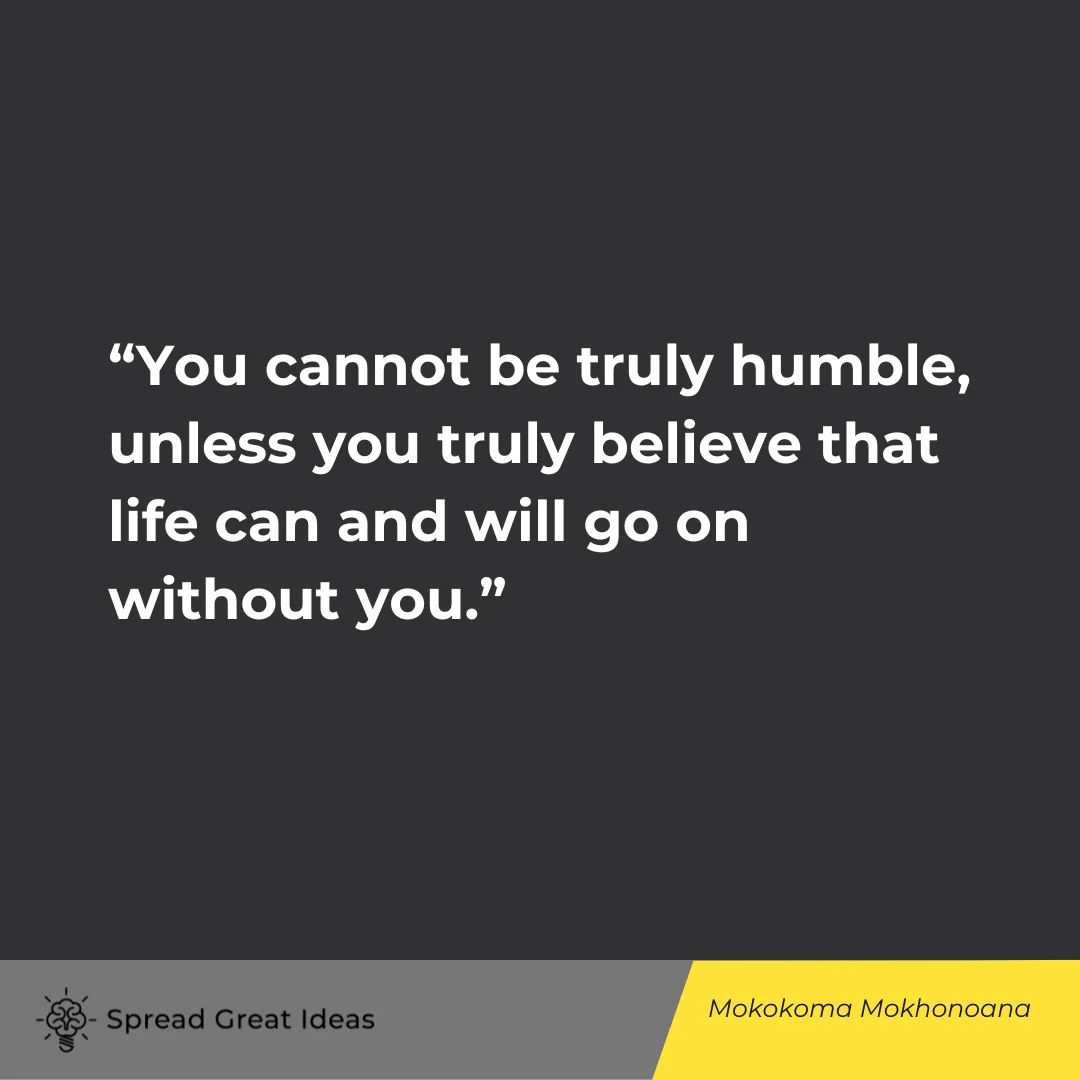
Mike Norton
“For a man who walks in the light, to stay humble is not to walk in the dark; you don’t need to project yourself to be thought an honest man.”
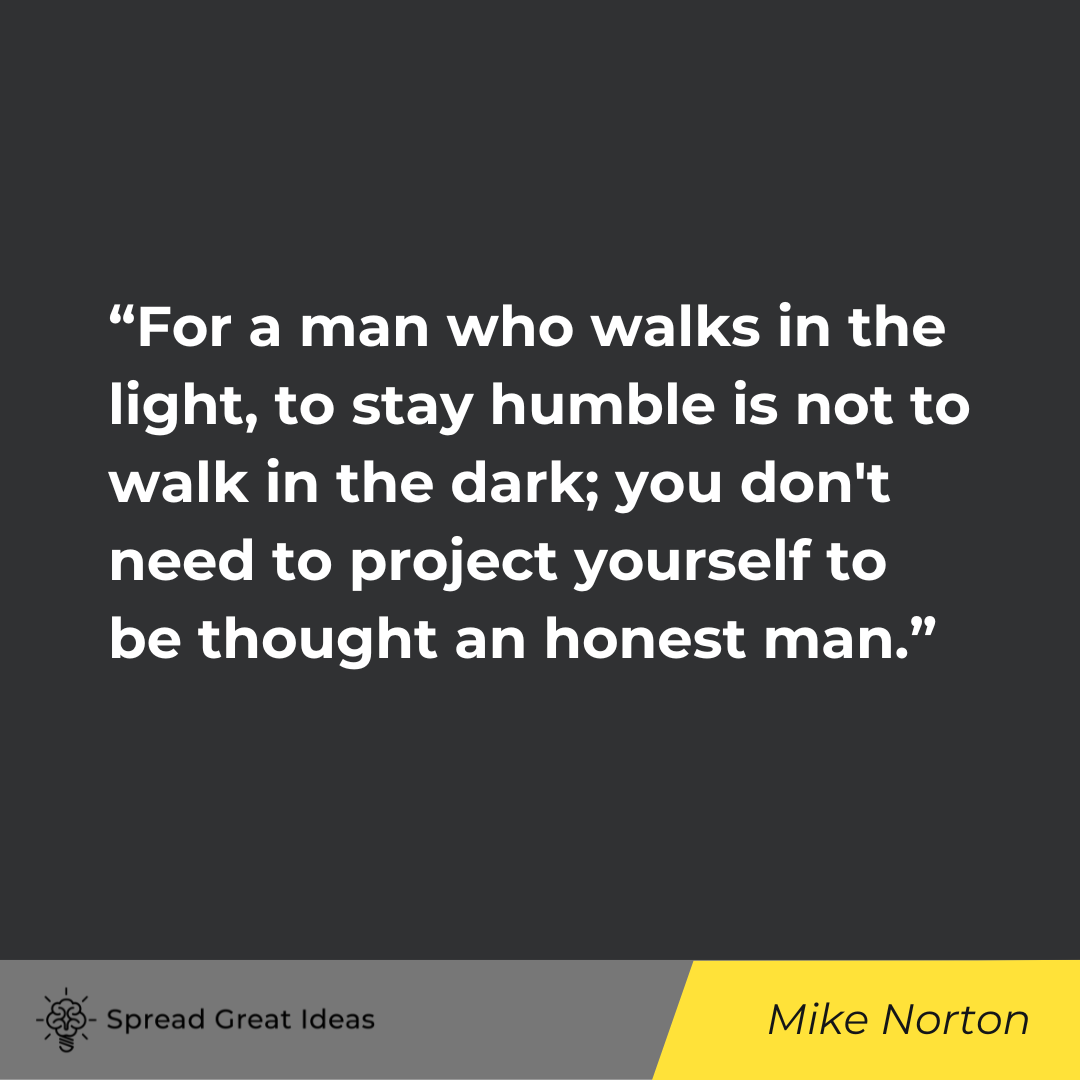
Lalah Delia
“I wish you self-esteem so high – you’re humble.”
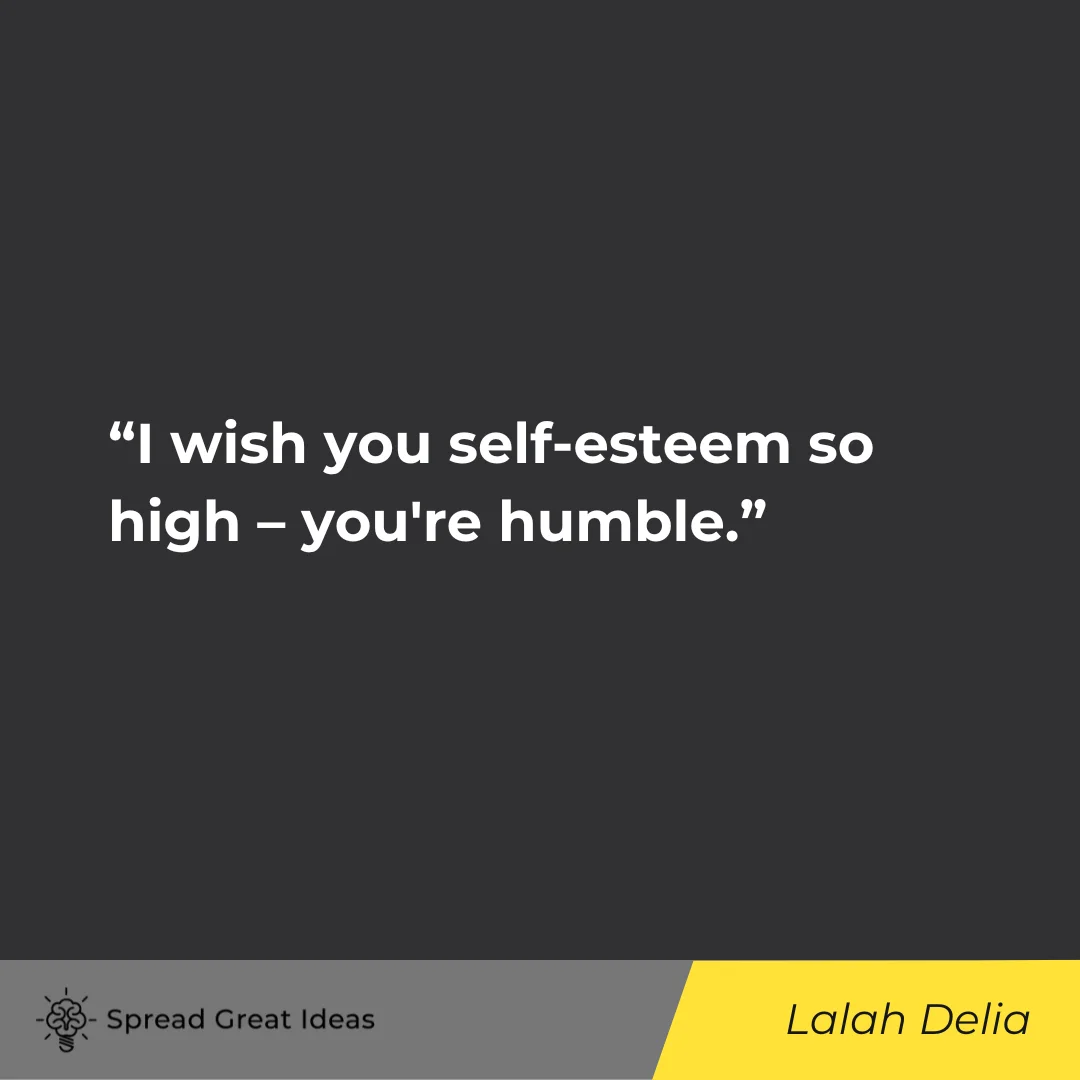
Nitya Prakash
“Being rude to waiters, cleaners or customer service assistants is very telling of someone’s character.”

Confucius
“A great man is hard on himself; a small man is hard on others.”
